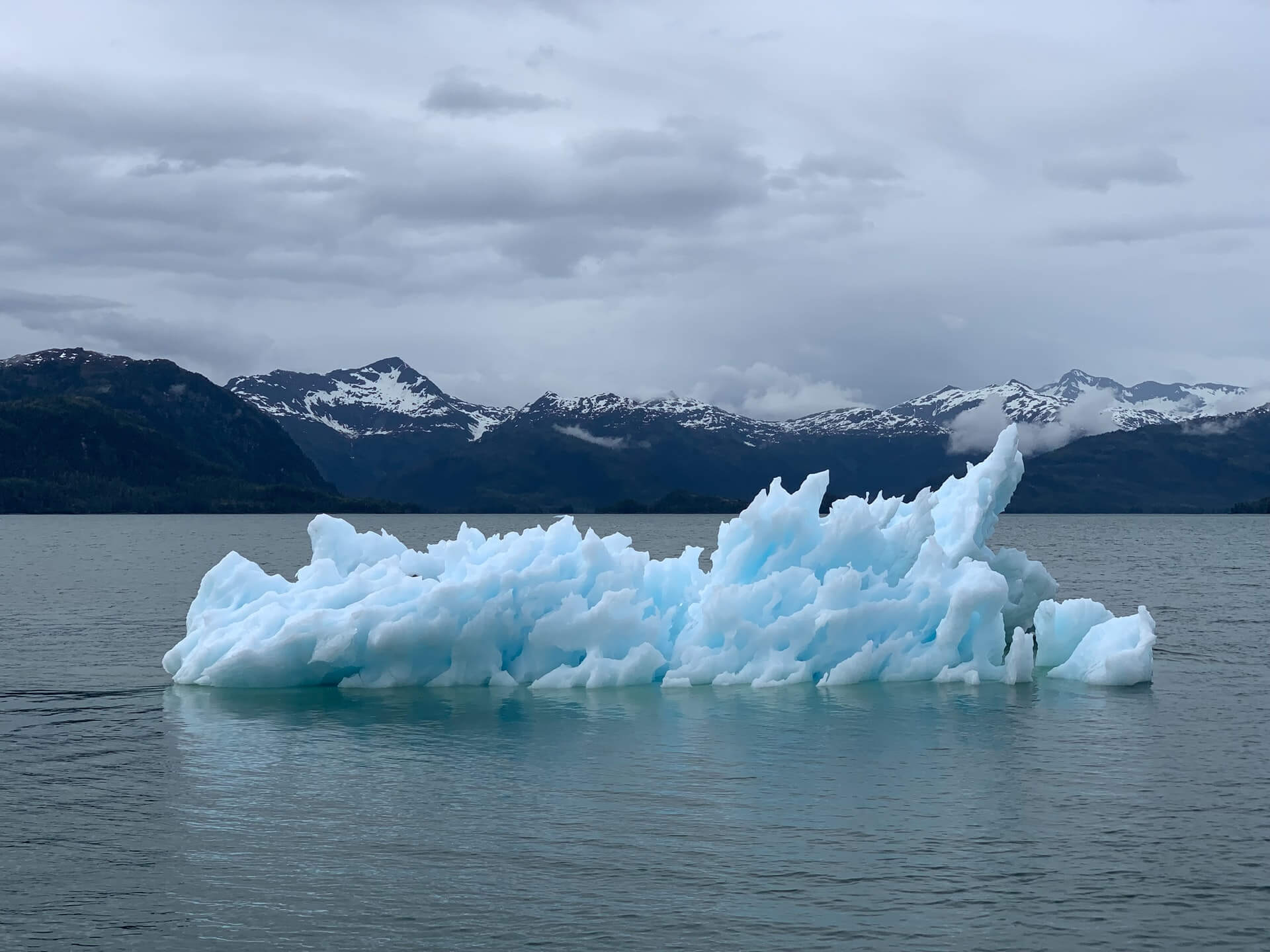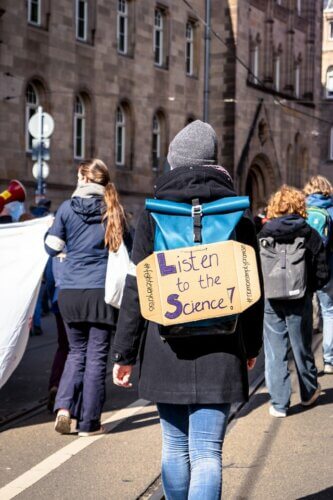Greta Thunberg is one of the best-known climate protection activists of our time. Her protest as a single schoolgirl in Stockholm developed into the global Fridays for Future movement, in which people of all ages and professions are involved today. Find out everything about Greta Thunberg’s life and political work here.
Greta Ernman Thunberg (born 3 January 2003 in Stockholm) is a Swedish climate activist who has become particularly well known for her school strikes for the climate. The initiative grew into the global Fridays for Future movement, which is committed to reducing emissions and increasing political intervention to counteract climate change.
| Born | 3 January 2003 in Stockholm |
|---|---|
| Awards (selection) | Swedish Woman of the Year (2019), Ambassador of Conscience Award (2019), Right Livelihood Award (2019), Prize for Humanity (2020), Forbes 30 under 30 (2020) |
Life: early interest in climate
Greta Thunberg was born in Stockholm on 3 January 2003, as the daughter of an opera singer and an actor. By her own account, her interest in climate change began in primary school, whereupon she read about it. As a result, she struggled with depression and an eating disorder. At the age of 12, she was also diagnosed as being on the autism spectrum.
In addition to personal choices such as a vegan diet and no more flying to avoid emissions, she won a writing competition on environmental policy organised by Svenska Dagbladet in 2018. The resulting contact with activists is said to have motivated her to also publicly campaign for climate protection.
In 2018/19, Greta graduated from school with very good grades and, having fulfilled her obligation to attend school, decided to dedicate a year to activism before continuing her schooling at a Stockholm high school in August 2020.
Work and activism: 2018 – today
Greta Thunberg’s work as a public activist began in 2018, three weeks before the Swedish parliamentary elections. She stood in front of the parliament building in Stockholm with a sign that read Skolstrejk för Klimatet, or School Strike for the Climate. She continued to do this every day until the election and then every Friday.

Position: what is Greta Thunberg asking for?
Greta Thunberg is in favour of politicians actively working to reduce global emissions and protect the climate. She argues that the consensus among climate scientists is that climate change will hit the younger generation particularly hard if no changes are made.
This includes, for example, droughts and crop failures, rising sea levels that can make areas uninhabitable, and the extinction of many animal and plant species that cannot adapt quickly enough to rising temperatures.
Greta is therefore asking for the wealthy countries in particular to reduce emissions, as it is their responsibility, since they can afford it. She wants to continue the strike until Sweden has permanently reduced its emissions by 15%.
To critics who accuse her of not being a scientist, she says that the consensus of scientists confirms her position, but that politicians are not following the demands of science.
Fridays for Future: from student strike to global movement

The Fridays for Future initiative evolved from Greta’s Skolstrejk for Klimatet as more and more people began to strike in front of their local government buildings. Initially, these were mainly schoolchildren, which triggered a discussion about the neglect of compulsory education, however subgroups such as Scientists for Future, Parents for Future and Students for Future also emerged.
In April 2019, Fridays for Future presented their demands to politicians, which had previously been developed in collaboration with scientists. A feasibility study was also commissioned to show that the demands are technically realisable. Among other things, the movement is calling for
- Coal phase-out by 2030
- 100% renewable energy supply by 2035
- End of subsidies for fossil fuels
- CO2 tax
Political work: famous speeches
As a result of her activism, Greta has been invited to speak at several international political events, including the UN Climate Change Conference in Katowice 2018, the World Economic Forum in Davos 2019, the European Economic and Social Committee in Brussels, the UN Climate Summit and the 25th UN Climate Change Conference. To get to New York City, she crossed the Atlantic Ocean on board a sailing yacht and a catamaran.
She also met with political decision-makers such as the President of the European Parliament. The extent of her influence and impact is demonstrated by the fact that she was named Person of the Year by the renowned Time magazine in 2019 – the youngest person to date to do so.
Criticism
Greta Thunberg received a lot of support on social media in particular, but also a lot of criticism. Especially Politicians from right-wing parties used her autism diagnosis, her age and her gender to discredit her. She was also accused of harming young people by encouraging them to skip school.